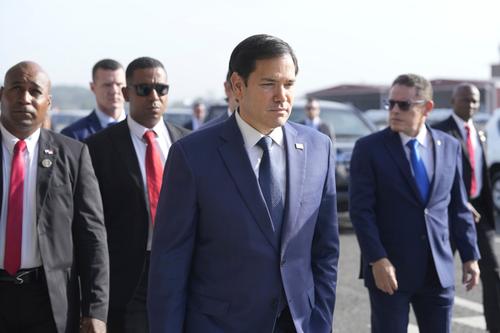The Belt and Road Initiative: Infrastructure Development or Dependency Creation?

China's Belt and Road Initiative (BRI), launched in 2013, is an ambitious global development strategy aimed at enhancing regional connectivity and fostering economic integration across Asia, Europe, and Africa.
While the BRI has been instrumental in building critical infrastructure in developing countries, it has also faced criticism for potentially fostering economic dependency on China.
This article examines whether the BRI is primarily a tool for infrastructure development or a means of creating dependency in participating nations.
Infrastructure Development: A Pillar of the BRI
The BRI's core objective is to promote infrastructure development by constructing roads, railways, ports, and energy facilities. For many developing countries, these projects address long-standing infrastructure deficits that hinder economic growth. In Africa, for instance, the BRI has facilitated the construction of vital infrastructure, contributing to improved connectivity and economic development.
Projects like the Mombasa–Nairobi Standard Gauge Railway in Kenya and the China-Laos Economic Corridor exemplify the BRI's role in enhancing transportation and energy infrastructure. These initiatives aim to reduce trade costs, improve access to markets, and stimulate economic activity.
The Risk of Economic Dependency
Despite the infrastructural benefits, the BRI has been criticized for potentially creating economic dependency on China. Critics argue that the financing mechanisms of BRI projects often involve loans from Chinese banks, which may be difficult for recipient countries to repay. This situation can lead to debt distress and increased reliance on China for financial support.
The case of Sri Lanka's Hambantota Port is frequently cited as an example of such dependency. Unable to repay Chinese loans, Sri Lanka leased the port to a Chinese company for 99 years, raising concerns about sovereignty and long-term economic control.
Transparency and Governance Challenges
Another concern is the transparency and governance of BRI projects. Some critics highlight that the lack of transparency in project planning and implementation can lead to inefficiencies and corruption. Weak governance structures in some recipient countries may exacerbate these issues, undermining the potential benefits of BRI investments.
Moreover, the involvement of Chinese state-owned enterprises in BRI projects has raised questions about the alignment of these projects with the development priorities of recipient countries. There is a risk that projects may be designed to serve China's strategic interests rather than the developmental needs of the host nations.
Geopolitical Implications
The BRI also has significant geopolitical implications. By financing large-scale infrastructure projects, China enhances its influence in participating countries, which may shift their foreign policy orientations. This growing influence has raised concerns among other global powers about China's expanding geopolitical footprint.
In some instances, countries have reassessed their participation in the BRI due to these geopolitical considerations. For example, Panama decided to end its relationship with the BRI after pressure from the United States, reflecting the complex interplay between infrastructure development and international diplomacy.
Balancing Infrastructure Development and Dependency
While the BRI has contributed to significant infrastructure development, it is essential for participating countries to carefully manage the associated risks. This includes ensuring that projects align with national development goals, maintaining transparency in project planning and implementation, and establishing sound governance frameworks to oversee BRI investments.
Additionally, diversifying sources of financing and engaging in multilateral development initiatives can help mitigate the risks of over-reliance on China. By adopting a balanced approach, countries can harness the benefits of the BRI while safeguarding their economic sovereignty.
The Belt and Road Initiative has the potential to significantly enhance infrastructure in developing countries, contributing to economic growth and regional integration. However, without careful management, there is a risk that these developments could lead to economic dependency on China. It is crucial for participating nations to ensure that BRI projects are implemented transparently, align with national development priorities, and are accompanied by strong governance mechanisms to maximize benefits and minimize risks.
- Questions and Answers
- Opinion
- Motivational and Inspiring Story
- Technology
- Live and Let live
- Focus
- Geopolitics
- Military-Arms/Equipment
- Sicurezza
- Economy
- Beasts of Nations
- Machine Tools-The “Mother Industry”
- Art
- Causes
- Crafts
- Dance
- Drinks
- Film/Movie
- Fitness
- Food
- Giochi
- Gardening
- Health
- Home
- Literature
- Music
- Networking
- Altre informazioni
- Party
- Religion
- Shopping
- Sports
- Theater
- Health and Wellness
- News
- Culture



